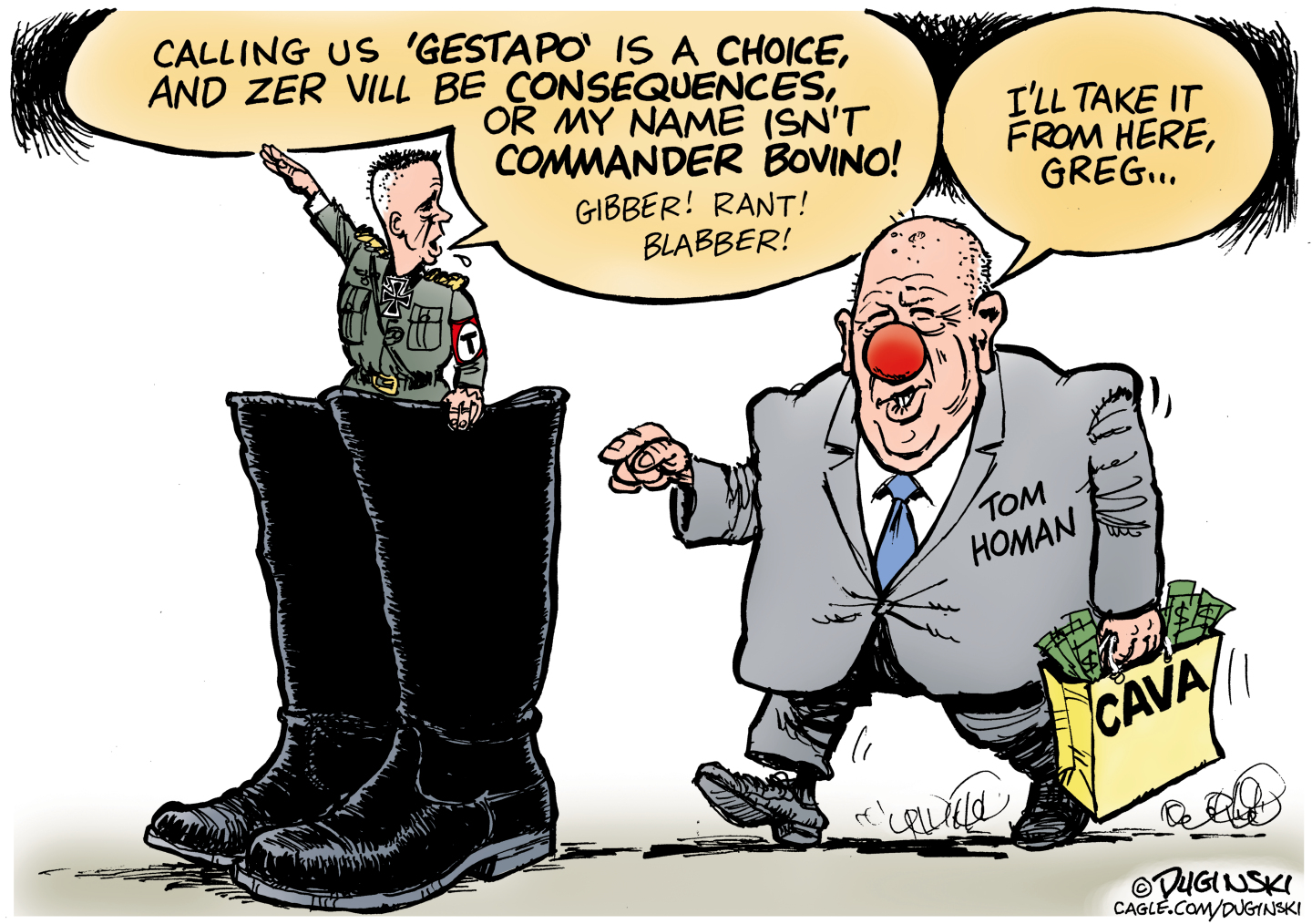Iran’s ‘moderate’ new president
Iranians elected a relatively moderate president, raising fresh hopes that a diplomatic solution might be found to its nuclear standoff with the West.
What happened
The people of Iran elected a relatively moderate president last week, raising fresh hopes that a diplomatic solution might be found to its nuclear standoff with the West. Hassan Rouhani, 64, was the most moderate of the six candidates permitted to run by Supreme Leader Ayatollah Ali Khamenei, and won on a centrist platform of renewed engagement abroad and greater cultural freedoms for young people and women in Iran. Iranians took to the streets in celebration at Rouhani’s landslide victory, in stark contrast to the riots following the disputed presidential election of 2009. But while Rouhani called his election “a victory for wisdom, moderation, and maturity...over extremism,” skeptics noted that he has long-standing, close ties to Iran’s religious establishment, and served as the country’s chief nuclear negotiator from 2003 to 2005.
U.S. officials nonetheless expressed hope that Rouhani’s victory might prompt Iran to reopen talks on its nuclear program, which the West believes is aimed at the development of nuclear weapons. In a post-election victory speech, Rouhani insisted that Iran’s uranium enrichment program was peaceful and would not be halted, but he did offer greater transparency if the U.S. dropped its sanctions, which have cut oil revenue in Iran by half and sent inflation soaring over 30 percent. “We have to enhance mutual trust between Iran and other countries,” Rouhani said.
The Week
Escape your echo chamber. Get the facts behind the news, plus analysis from multiple perspectives.

Sign up for The Week's Free Newsletters
From our morning news briefing to a weekly Good News Newsletter, get the best of The Week delivered directly to your inbox.
From our morning news briefing to a weekly Good News Newsletter, get the best of The Week delivered directly to your inbox.
What the editorials said
Compared with his predecessor, the belligerent anti-Semite Mahmoud Ahmadinejad, Rouhani may sound like a moderate, said The Wall Street Journal.But he is hardly “Thomas Jefferson in a robe.” Rather, Rouhani is a reliable proxy for Iran’s “Shiite fascist state” and its authoritarian ruling clerics, who are backed by the powerful Islamic Revolutionary Guard Corps. If Rouhani does agree to talks, it will be mainly to “ease Western sanctions and buy more nuclear time.”
Don’t be so sure of that, said The Baltimore Sun.Rouhani’s commanding victory in a massive, 70 percent turnout of voters shows that “the majority of ordinary Iranians are far less interested in pursuing nuclear weapons than in rescuing their economy.” It’s possible that the ayatollahs will respond by using Rouhani’s victory “as a face-saving way” to avoid a military confrontation with Israel and the U.S. For the Iranian people, this election was a very big deal, said the Chicago Tribune. Iranians “are clearly chafing at the theocratic repressiveness of their government,” and “weary with international pariah status.”
What the columnists said
A free daily email with the biggest news stories of the day – and the best features from TheWeek.com
Rouhani’s victory is a “source of hope for the world at large,” said Hooman Majd in The New York Times. Unlike Ahmadinejad, the avowed centrist is “genuinely popular,” and has Khamenei’s ear. Iranian policy won’t change overnight, but Rouhani’s moderating influence “will be felt.” If Rouhani can improve freedoms within Iran, said Shashank Joshi in Bloomberg.com, he will gain the power to shape popular opinion. The ayatollahs may then have no choice but to let him work out “an eventual compromise” on nuclear talks.
The supreme leader doesn’t care about popular opinion, said Jonathan S. Tobin in CommentaryMagazine.com. This election served merely as a means for the Iranian people “to blow off steam about the government.” By letting a so-called “moderate” become president, Khamenei has eased domestic discontent with his hard-line regime, and duped “useful idiots in the West” into wasting another year or two on doomed efforts at diplomacy, while Iran races toward “its nuclear goal.”
We in the West can’t be sure what Rouhani’s election will mean, said Michael Singh in The Washington Post. Yes, it could be “a wily trick” by the ayatollah. But it’s also possible the mullahs will see how angry Iranians are about the severe damage sanctions have done to the country’s economy, and will conclude that “change is now necessary.” So Obama must tread carefully, and “focus on Iranian actions, not Iranian personalities.” That means keeping sanctions in place until Iran agrees to give international inspectors unrestricted access to its nuclear facilities. Relaxing the pressure in response to Rouhani’s more conciliatory rhetoric would only tell Khamenei that “relief can be had on the cheap, without a true strategic shift.”
-
 Political cartoons for January 27
Political cartoons for January 27Cartoons Tuesday's political cartoons include booting out Bovino, a Rittenhouse reminder, and needling with Newsom
-
 Judge tosses DOJ petition for Oregon voter data
Judge tosses DOJ petition for Oregon voter dataSpeed Read The decision was made following a letter sent by the DOJ to Minnesota
-
 Israel retrieves final hostage’s body from Gaza
Israel retrieves final hostage’s body from GazaSpeed Read The 24-year-old police officer was killed during the initial Hamas attack
-
 The billionaires’ wealth tax: a catastrophe for California?
The billionaires’ wealth tax: a catastrophe for California?Talking Point Peter Thiel and Larry Page preparing to change state residency
-
 Bari Weiss’ ‘60 Minutes’ scandal is about more than one report
Bari Weiss’ ‘60 Minutes’ scandal is about more than one reportIN THE SPOTLIGHT By blocking an approved segment on a controversial prison holding US deportees in El Salvador, the editor-in-chief of CBS News has become the main story
-
 Has Zohran Mamdani shown the Democrats how to win again?
Has Zohran Mamdani shown the Democrats how to win again?Today’s Big Question New York City mayoral election touted as victory for left-wing populists but moderate centrist wins elsewhere present more complex path for Democratic Party
-
 Millions turn out for anti-Trump ‘No Kings’ rallies
Millions turn out for anti-Trump ‘No Kings’ ralliesSpeed Read An estimated 7 million people participated, 2 million more than at the first ‘No Kings’ protest in June
-
 Ghislaine Maxwell: angling for a Trump pardon
Ghislaine Maxwell: angling for a Trump pardonTalking Point Convicted sex trafficker's testimony could shed new light on president's links to Jeffrey Epstein
-
 The last words and final moments of 40 presidents
The last words and final moments of 40 presidentsThe Explainer Some are eloquent quotes worthy of the holders of the highest office in the nation, and others... aren't
-
 The JFK files: the truth at last?
The JFK files: the truth at last?In The Spotlight More than 64,000 previously classified documents relating the 1963 assassination of John F. Kennedy have been released by the Trump administration
-
 'Seriously, not literally': how should the world take Donald Trump?
'Seriously, not literally': how should the world take Donald Trump?Today's big question White House rhetoric and reality look likely to become increasingly blurred